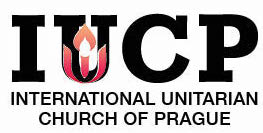What We Believe
Unitarians – who are we?
Unitarianism emerged………
From the Jewish and Christian Traditions within the Radical Protestant Reformation and has since widened and grown with the appreciation that there is spiritual truth to be found in many religious traditions.
Unitarians are……..
Liberal religious people whose main principles are freedom, reason and tolerance.
Unitarians do not……………..
Subscribe to a creed. This does not mean we have no beliefs, simply that all are free to define those beliefs for themselves.
Unitarians seek……..
Their own truths through continual exploration and education.
Unitarians sincerely desire……..
Peace, justice and the integrity of creation.
Unitarians affirm………….
The unity of the divine and the unity in diversity of all people.
Our congregation is part of the Religious Society of Czech Unitarians and the European Unitarian Unversalists.
The nine core principles of Czech Unitarianism:
- Freedom of conscience and faith
- Tolerance and understanding others
- Using critical reason in religion
- Harmonious development of personality
- Compassion, equity, and justice in human relations
- Respect for the dignity and worth of every person
- Helping others and social responsibility
- Respect for life and nature
- Democratic way of organization
Shared Unitarian Universalism values (2024):
As UUs, we covenant, congregation-to-congregation and through our Association, to support and assist one another in our ministries. We draw from our heritages of freedom, reason, hope, and courage, building on the foundation of love.
Love is the power that holds us together and is at the center of our shared values. We are accountable to one another for doing the work of living our shared values through the spiritual discipline of Love.
Inseparable from one another, these shared UU values are:
- Equity
- Generosity
- Interdependence
- Justice
- Pluralism
- Transformation
The seven principles of Unitarian Universalism (1985):
- The inherent worth and dignity of every person;
- Justice, equity, and compassion in human relations;
- Acceptance of one another and encouragement to spiritual growth in our congregations;
- A free and responsible search for trust and meaning;
- The right of conscience and the use of the democratic process within our congregations and in society at large;
- The goal of world community with peace, liberty, and justice for all;
- Respect for the interdependent web of all existence of which we are a part.
